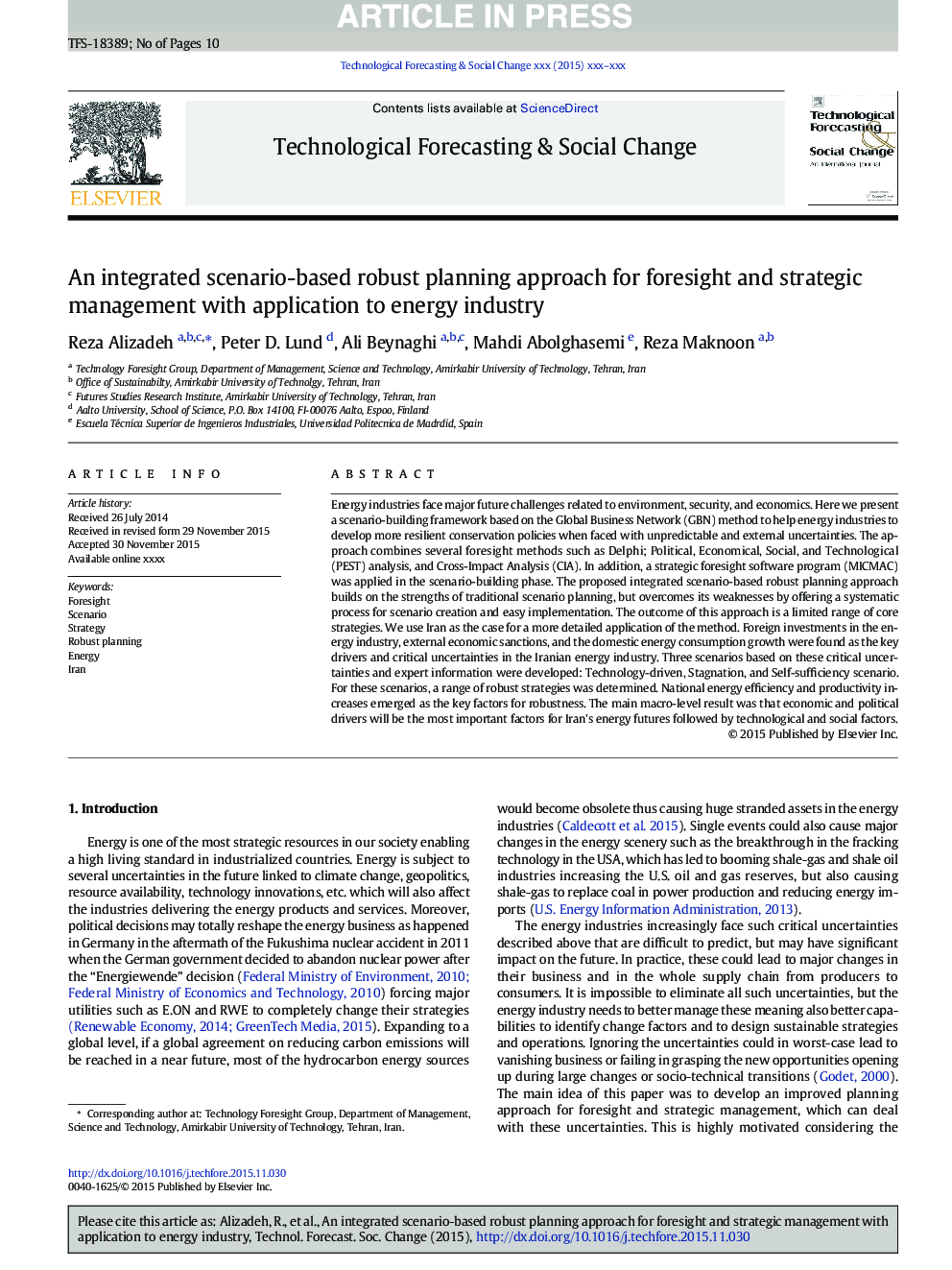| Article ID | Journal | Published Year | Pages | File Type |
|---|---|---|---|---|
| 7256106 | Technological Forecasting and Social Change | 2016 | 10 Pages |
Abstract
Energy industries face major future challenges related to environment, security, and economics. Here we present a scenario-building framework based on the Global Business Network (GBN) method to help energy industries to develop more resilient conservation policies when faced with unpredictable and external uncertainties. The approach combines several foresight methods such as Delphi; Political, Economical, Social, and Technological (PEST) analysis, and Cross-Impact Analysis (CIA). In addition, a strategic foresight software program (MICMAC) was applied in the scenario-building phase. The proposed integrated scenario-based robust planning approach builds on the strengths of traditional scenario planning, but overcomes its weaknesses by offering a systematic process for scenario creation and easy implementation. The outcome of this approach is a limited range of core strategies. We use Iran as the case for a more detailed application of the method. Foreign investments in the energy industry, external economic sanctions, and the domestic energy consumption growth were found as the key drivers and critical uncertainties in the Iranian energy industry. Three scenarios based on these critical uncertainties and expert information were developed: Technology-driven, Stagnation, and Self-sufficiency scenario. For these scenarios, a range of robust strategies was determined. National energy efficiency and productivity increases emerged as the key factors for robustness. The main macro-level result was that economic and political drivers will be the most important factors for Iran's energy futures followed by technological and social factors.
Related Topics
Social Sciences and Humanities
Business, Management and Accounting
Business and International Management
Authors
Reza Alizadeh, Peter D. Lund, Ali Beynaghi, Mahdi Abolghasemi, Reza Maknoon,
